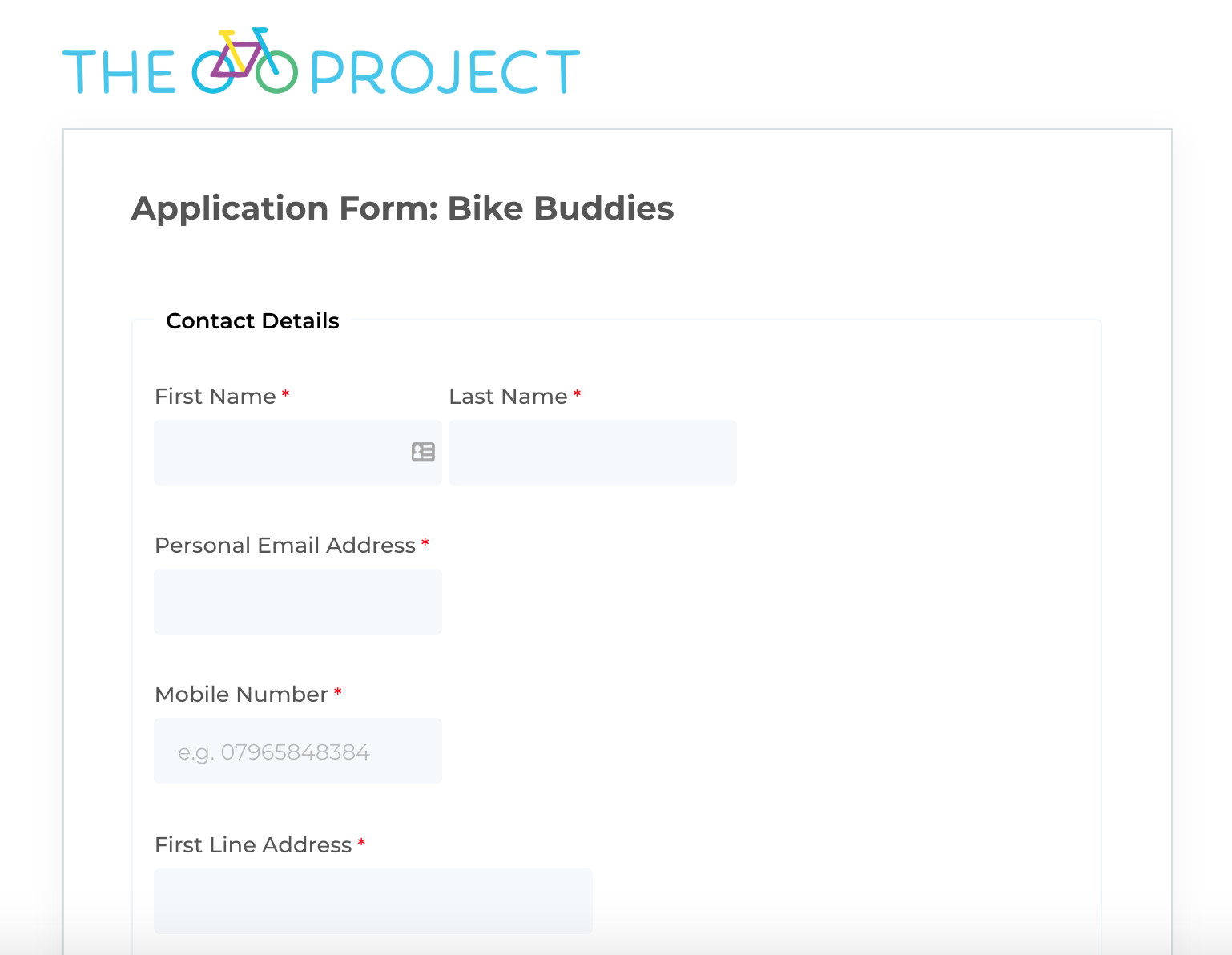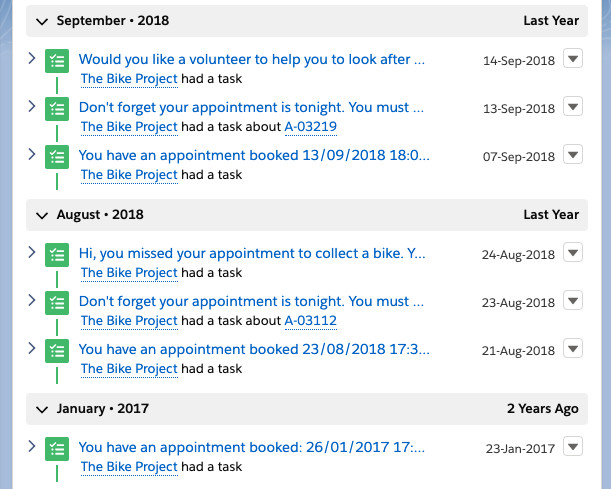Providing the tools to scale
The Bike Project
Organisation's Mission
The Bike Project's mission is to take second-hand bikes, fix them up in its workshop and donate them to refugees and asylum-seekers in London and Birmingham. In the UK, refugees navigating the complex asylum process are given just £37 a week, and The Bike Project believes that no one should have to choose between eating a square meal and catching the bus. A bike helps refugees access food banks, legal advice, healthcare, education and much more.
As well as its charitable activities, The Bike Project runs workshops and sells a proportion of its refurbished bikes through its online shop. Every penny made is then ploughed back into the charity, helping to secure long-term sustainability and get even more refugees cycling.
The Challenge
The Bike Project was already using Salesforce but wanted to scale its Bike Buddies programme, which matches refugee cyclists with a buddy in their local area to help build confidence using their bike. Prospective buddies had no way of registering their interest online, which meant lots of manual data entry for staff. With no system in place, staff were also having to rely on their knowledge of the geography of volunteers in relation to refugees in order to match buddies, something they knew would not be sustainable at scale. Additionally, The Bike Project was also hosting a growing number of appointments for bike maintenance, workshops and training, but had no simple way of being able to send reminders to those who had booked them.
We were desperate for a solution to help make the management of our network of refugees and volunteer cyclists much more efficient. We had a system in place, but the functionality was limited and the project manager was wasting a lot of time manually mapping and essentially duplicating data entry.
Nicola Hill, National Operations Manager, The Bike Project
Our Solution
Having discussed with The Bike Project the barriers they were facing to scaling Bike Buddies, we worked with them to design a system that would allow staff to manage the full programme lifecycle within Salesforce - from application, to matching, to tracking meet-ups. We began by building an online version of their application form that could be hosted on the charities website. This allowed individuals to register their interest in a way that went straight into Salesforce. We then built a place to store application responses against the prospective volunteer, so this information could be easily managed and reported on.

Online forms mean that data can go straight into the system saving staff time
Next, to help maximise the efficiency and ease of matching buddies to refugees, we built a mapping page within Salesforce. This allows staff to view the locations and key information of available buddies and unmatched refugees, as well as to easily filter which types of beneficiary and volunteer to display. Staff can then identify suitable matches quickly and reliably.

Volunteers and beneficiaries are easily distinguishable on the map
We then tackled The Bike Project's challenge of managing a growing number of appointments arranged at their various shops and workshops. As SMS had proved the most effective means of communicating with volunteers and beneficiaries, we leveraged an existing integration with Twilio. Now, when an appointment is made via the web form, a series of SMS messages are scheduled by the system. Confirmations, reminders and notifications of missed appointments are automatically sent, and any replies from are logged against the contact that the mobile number is associated with, giving users a clear overview of the messaging history with beneficiaries.

The Twilio integration allows SMS to be easily sent from Salesforce

All correspondence is stored in one place and can be easily reviewed at-a-glance
The Impact
The mapping functionality has increased efficiency and enabled The Bike Project to deliver Bike Buddies at a scale that otherwise would not have been possible
Integrated web forms have eliminated the need for manual data entry and improved data quality, providing a solid foundation for reporting
The enhancements have helped staff to consolidate and better manage communication by eliminating the need for other platforms, such as sending texts from mobile phones
Text reminders have helped to reduce the number of missed appointments, thus ensuring that staff and volunteer time is used efficiently
Now we are able to update our map in real time, avoid duplication of data and show the information that is most relevant [...] which ensures that refugees are able to be matched with a Bike Buddy as soon as one becomes available. The mapping tool also helps us visualise and analyse our data in different ways, seeing geographical black spots and working out how we can overcome them to deliver our programme most effectively.
Nicola Hill, National Operations Manager, The Bike Project
Want to find out more?
Get in touchImpact Box Cooperative Limited
Registered Company Number 13924647
Ⓒ Impact Box 2022

